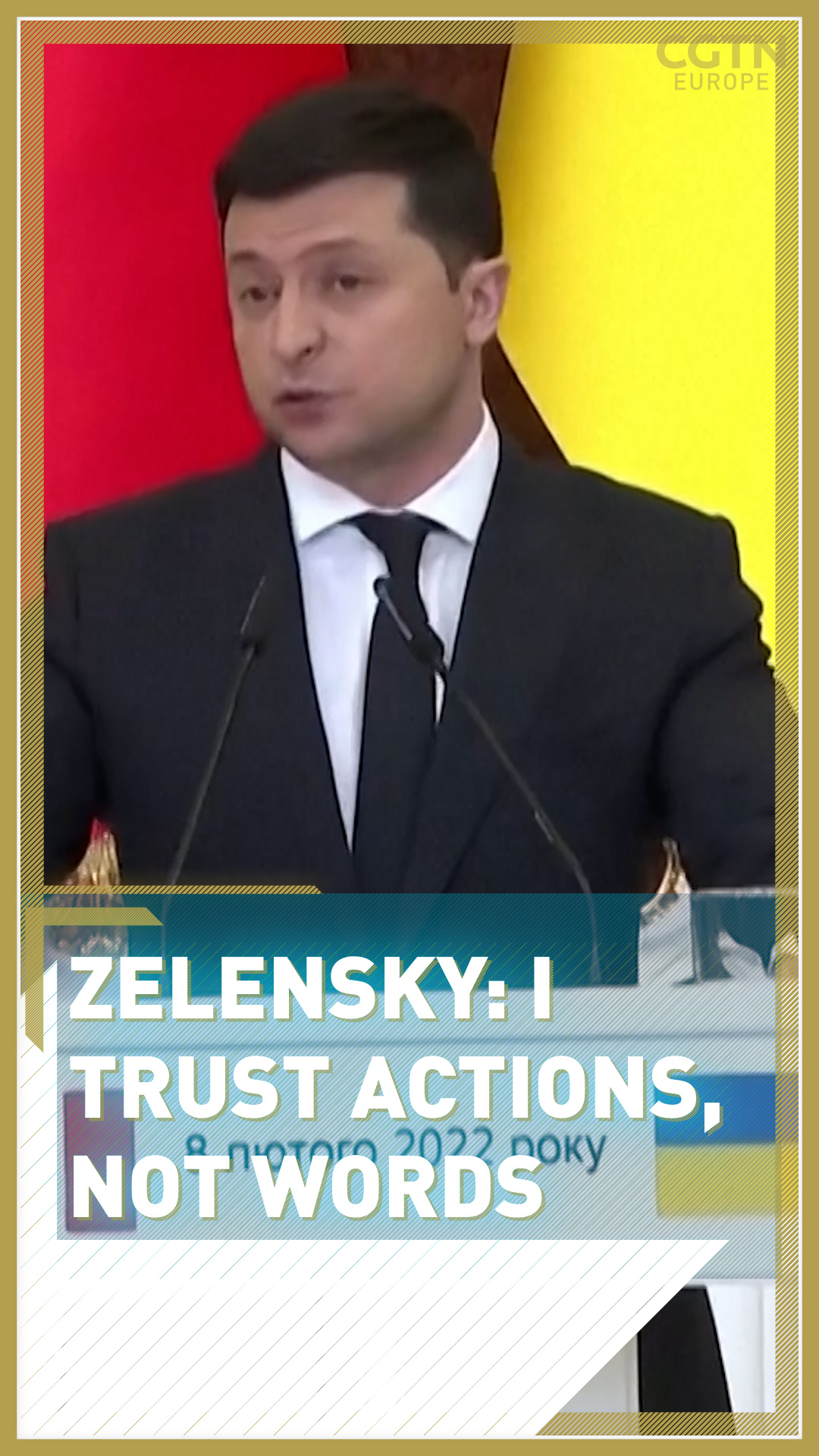
French President Emmanuel Macron and his Ukrainian counterpart Vladimir Zelensky. /Gleb Garanich/Reuters
French President Emmanuel Macron and his Ukrainian counterpart Vladimir Zelensky. /Gleb Garanich/Reuters
Leaders and diplomats have engaged in a flurry of activity, trying to find a settlement to the standoff between Russia, Ukraine and Nato.
Despite recent efforts, a resolution could take months, according to France's President Emmanuel Macron, following talks with his Ukrainian counterpart Vladimir Zelensky in Kyiv on Tuesday.
A day earlier, there had been cautious optimism after the French leader met with Russian President Vladimir Putin, who agreed that some of Macron's proposals could serve as a basis for resolving the conflict in east Ukraine.
READ MORE
The psychological toll of Ukraine's conflict
Infrastructure becomes a target
Civilians train in preparation for escalation
"We now have the chance of advancing negotiations," said Macron as he announced that both sides had reaffirmed their commitment to the Minsk accords – agreements aimed at ending the war in the Donbas region.
Yet Zelensky made clear he was skeptical of any assurances Macron may have received from Putin.
"Generally, I don't quite trust words," Zelensky told the press in Kyiv. "That's why I think that every politician can show his or her openness by concrete deeds. In our case, those are steps towards de-escalation."
00:26

That sentiment is reflected on the streets of the east Ukrainian city of Kramatorsk, where hopes are not high that diplomacy will win the day.
"These diplomatic meetings are just for TV," said one resident who wished not to be named.
Those along the conflict line, who have lived with the sporadic sounds of gunfire and shelling for the last eight years, show signs of indifference towards the diplomacy taking place in Kyiv, some 700 kilometers away.
"Think global, act local," said another resident. "Know what is happening, but all you can affect is what is around you."

German Foreign Minister Annalena Baerbock visits Shyrokyne. /Bernd von Jutrczenka/Reuters
German Foreign Minister Annalena Baerbock visits Shyrokyne. /Bernd von Jutrczenka/Reuters
The weight of a possible invasion by Russia is always there for east Ukrainians, but so are the hardships of their everyday lives, which have become even more challenging since the conflict began.
Ukraine has improved its military capabilities substantially since the conflict with pro-Russian separatists began in 2014 and more Nato troops continue to be deployed to Eastern Europe in case of a full-scale invasion.
But while diplomats such as Germany's Foreign Minister Annalena Baerbock, dressed in military protective gear, visit conflict communities, it is hoped that humanitarian help will come to those who most desperately need it.
Leaving the war-ravaged village of Shyrokyne in Ukraine's southeast, Baerbock relayed her feelings, saying, "this is testament to the fact that we have war in the middle of Europe."

